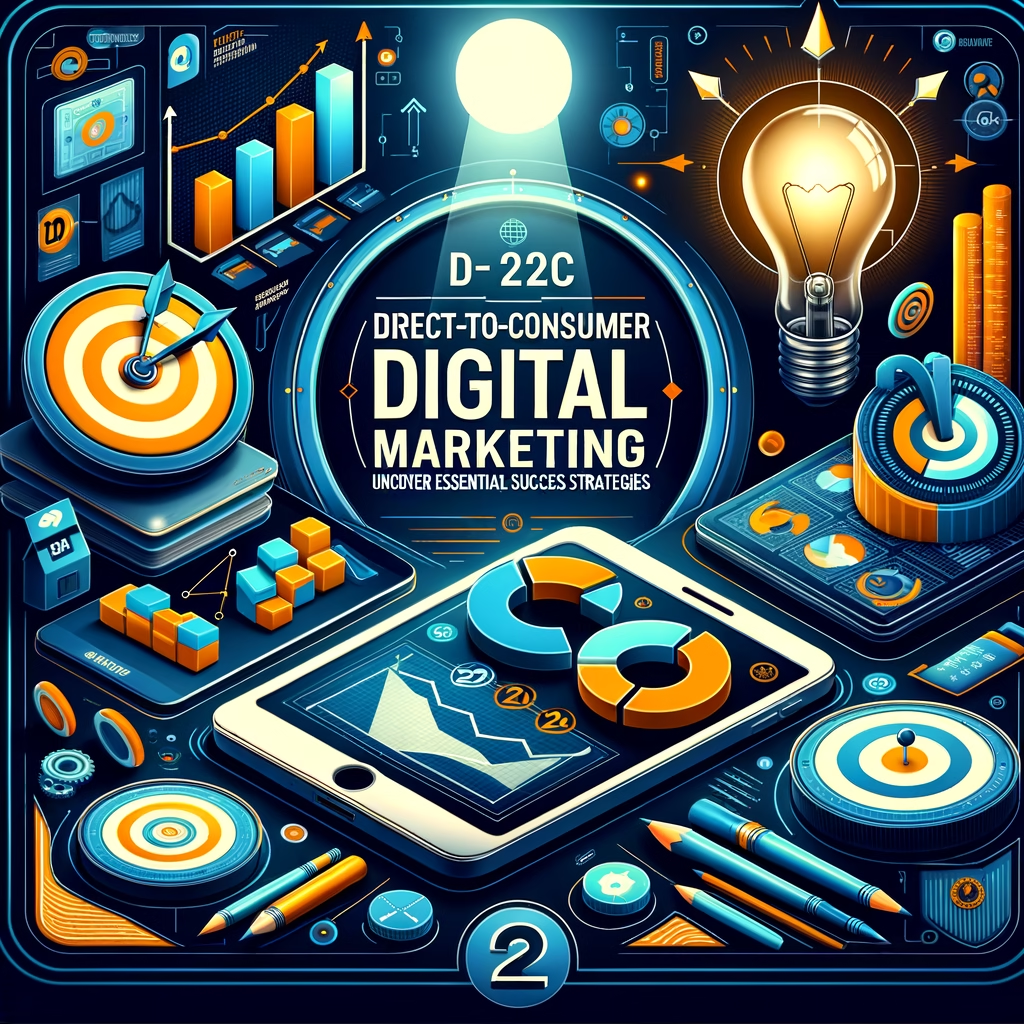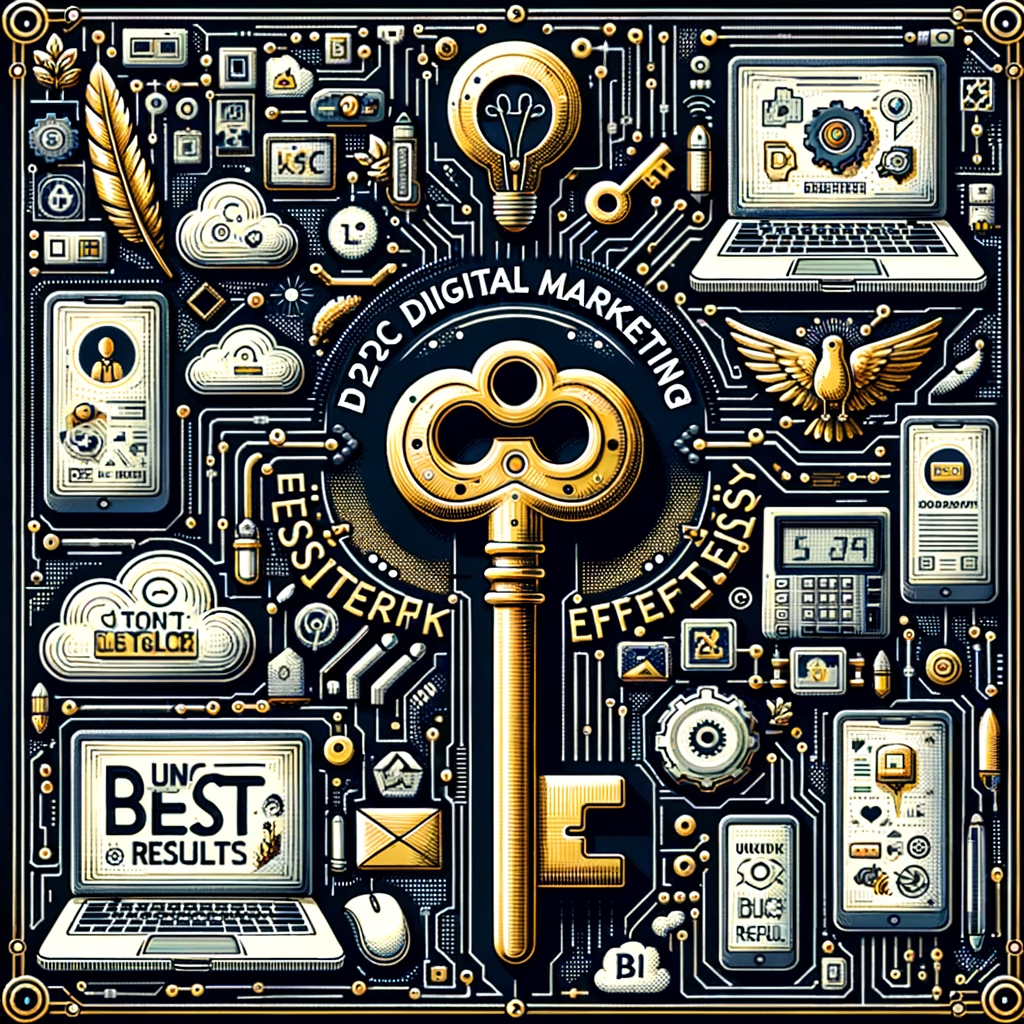- Strategies for B2B Digital Marketing: A Path to Effortless Success
- Understanding the B2B Audience
- Creating Detailed Buyer Personas
- Content Marketing: The Heart of B2B Digital Success
- Developing a Content Calendar
- Emphasizing Long-Form Content
- Leveraging Social Media for B2B Interaction
- Crafting Engaging LinkedIn Campaigns
- Harnessing the Power of SEO
- Keyword Research and Optimization
- Building a Strong Backlink Profile
- Incorporating Marketing Automation
- Streamlining Lead Nurturing through Automation
- Using Analytics for Real-Time Insights
- Enhancing User Experience (UX)
- Designing an Intuitive Website
- Personalizing User Interactions
- Measuring Success and Continuous Improvement
- Setting Clear Analytics Goals
- Conducting A/B Testing
- Conclusion
Strategies for B2B Digital Marketing: A Path to Effortless Success

B2B digital marketing strategies are pivotal for achieving effortless success in an increasingly competitive online marketplace. These strategies, when meticulously crafted and executed, serve as the backbone of a successful digital presence, helping businesses engage the right audience and foster lasting relationships.
Understanding the B2B Audience
The cornerstone of any effective strategy is a profound understanding of the target audience. B2B marketers must delve into the intricacies of their audience’s business needs, challenges, and goals. Unlike B2C marketing, where emotional appeal often takes precedence, B2B marketing prioritizes logic and tangible benefits. This means a thorough analysis of decision-makers, their buying journey, and the factors influencing their purchasing decisions is of utmost importance.
Creating Detailed Buyer Personas
To tailor your strategies effectively, develop comprehensive buyer personas. These fictional representations of your ideal customers should include demographic information, business roles, industry challenges, goals, and preferred communication channels. By doing so, you align your marketing efforts with the real needs of your audience, increasing the likelihood of conversion.
Content Marketing: The Heart of B2B Digital Success
Content marketing holds an esteemed position in B2B strategies. High-quality, informative content not only attracts potential clients but also establishes credibility and thought leadership within your industry.
Developing a Content Calendar
An organized content calendar is essential for maintaining a consistent and engaging online presence. Start by brainstorming topics that resonate with your audience, addressing their pain points and offering solutions. Incorporate a mix of blog posts, whitepapers, case studies, and videos to cater to various learning preferences.
By planning and scheduling content in advance, you ensure a steady flow of valuable information that keeps your audience engaged and informed.
Emphasizing Long-Form Content
B2B audiences often seek in-depth analyses and comprehensive insights. Therefore, long-form content, like detailed guides and e-books, is particularly effective in this arena. Such content not only provides value but also establishes your brand as an authority in the field.
Leveraging Social Media for B2B Interaction
While many associate social media with B2C marketing, it is equally significant for B2B interactions. Platforms like LinkedIn, Twitter, and even Facebook offer venues for professionals to connect, share information, and participate in industry-specific discussions.
Crafting Engaging LinkedIn Campaigns
LinkedIn stands out as the premier platform for B2B engagement. Utilize it for targeted advertising, informative posts, and direct networking. LinkedIn’s robust targeting options allow you to reach decision-makers based on their job title, industry, and company size, making it an invaluable asset for generating leads.
Harnessing the Power of SEO
Search engine optimization (SEO) is a fundamental strategy in enhancing your digital presence and ensuring effortless discovery by potential clients.
Keyword Research and Optimization
Invest time in comprehensive keyword research to identify terms and phrases your prospects use when seeking solutions. Optimize your website content, blog posts, and meta tags with these keywords to improve your search engine rankings and attract more organic traffic.
Building a Strong Backlink Profile
A well-rounded backlink profile boosts your site’s authority and visibility. Focus on acquiring quality backlinks from reputable industry sites, directories, and partners. Engaging in guest blogging and creating shareable content can also enhance your backlink strategy.
Incorporating Marketing Automation
With numerous channels and strategies in play, marketing automation simplifies the process, allowing you to manage campaigns more efficiently while targeting the right audience at the right time.
Streamlining Lead Nurturing through Automation
Automated email campaigns and lead scoring systems identify and prioritize prospects based on their engagement level. By delivering personalized, timely messages, you move leads smoothly through the sales funnel, turning potential interest into confirmed deals.
Using Analytics for Real-Time Insights
Modern marketing tools offer real-time analytics and reporting features that provide insights into campaign performance. By analyzing these metrics, you can make informed decisions, optimizing your strategies for better results.
Enhancing User Experience (UX)
The digital experience you provide can significantly influence a prospect’s decision to engage with your brand.
Designing an Intuitive Website
Your website should be user-friendly, mobile-responsive, and optimized for speed. Clear navigation, compelling calls-to-action, and a seamless user journey are crucial elements that contribute to positive user experience and increase conversion rates.
Personalizing User Interactions
Personalization extends beyond emails. Consider dynamic website content that changes based on user behavior or preferences. This level of customization enhances the user experience, making potential clients feel valued and understood.
Measuring Success and Continuous Improvement
No strategy is complete without a method for assessing its success. Establishing key performance indicators (KPIs) aligned with your business objectives ensures you can evaluate the impact of your efforts.
Setting Clear Analytics Goals
Define specific, measurable goals for each campaign element, whether it’s lead generation, website traffic, or social media engagement. Use these metrics to gauge success and identify areas for improvement.
Conducting A/B Testing
A/B testing is an invaluable tool for refining your strategies. Test different approaches, whether it’s ad copy, landing pages, or email subject lines, to determine what resonates best with your audience.
Conclusion
The landscape of B2B digital marketing is ever-evolving, demanding agility and innovation. By understanding your audience, creating compelling content, leveraging social platforms, optimizing for search engines, and utilizing automation, you set the stage for effortless success. Remember to continuously measure and refine your strategies, ensuring they remain aligned with changing market dynamics. Employing these tactics not only enhances your digital presence but also positions your brand as a trusted leader in your industry.



